Il Rosa Nudo: il trionfo del cinema indipendente
Bilanci per Giovanni Coda: il regista riassume i successi e gli incomprensibili silenzi sul film. L'intervista di Elisabetta Randaccio (English translation by Rita Imperiali)
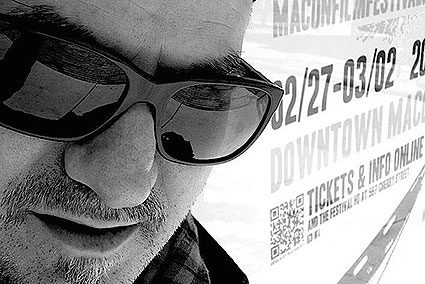 Dopo l'articolo la versione in inglese.
Dopo l'articolo la versione in inglese.
A sfogliare il report del film “Il Rosa Nudo” di Giovanni Coda, c'è da rimanere stupiti e, per certi versi, ci si sente anche un po' amareggiati. Infatti, siamo di fronte a un'opera artistica, peraltro di ottima qualità e con anche un pregio didattico-sociale visto l'argomento di cui tratta (la terribile vicenda di Pierre Seel, giovane finito in un lager nazista perché gay), che è stata poco compresa sia dalle istituzioni sia dai media, almeno quelli sardi.
Però, il lungometraggio di Coda si è preso una serie di soddisfazioni all'estero, non comuni ai film girati in Sardegna. E' stato selezionato in Festival importanti e ha vinto il premio principale al “Seattle Social Justice Film Festival” e al “Gothenburg Indipendent Film Festival”.
A costo di sembrare noiosi, vogliamo citare le manifestazioni in cui ha avuto nomination e successo di critica e di pubblico: “Macon Film Festival”, in Georgia, USA; “Athens Film Festival”, in Ohio; “Cinefestival Diritti Umani”, a Napoli; “Kashish Mumbai International Queer Film Festival; “TGLFF-Torino Gay and Lesbian Film Festival”; “Florence Queer Festival”; “Mix Festival” a Milano. E' stato, inoltre, l'evento speciale al “Venezia Queer Festival”, nella Mostra d'Arte Cinematografica di Venezia 2013; ha avuto 4 nomination per il “David di Donatello” e una per il “Ciak d'oro”. Come si vede un curriculum rilevante costruito in un anno di fatiche, ma anche di importanti gratificazioni.
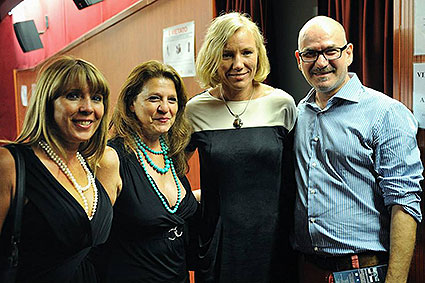 Al regista Giovanni Coda abbiamo chiesto di fare un bilancio di questi mesi straordinari:
Al regista Giovanni Coda abbiamo chiesto di fare un bilancio di questi mesi straordinari:
“Il Rosa Nudo” è in circuito da quasi due anni, un percorso creativo iniziato da una mostra fotografica installata a Barcellona, parallelamente all'approfondimento di una storia drammatica che pochi conoscevano, inserita nell'ambito della Shoah, ma nel livello rimosso della deportazione degli omosessuali nei lager nazisti. Era un materiale “potente” già sulla carta, ma è divenuto altrettanto potente nella costruzione comunicativa, pur essendo “Il Rosa Nudo” un film antinarrativo, cinematograficamente situato tra la modernità e la tradizione, la teatralità e, forse, certe evocazioni del cinema di Ozu. Questo lungometraggio “difficile” è stato amato dal pubblico dei festival. Emblematico il successo negli Stati Uniti, dove è stato presente in cinque manifestazioni differenti. A Seattle, dove ha vinto il primo premio al “Social Justice Film Festival”, che è un evento generalista e non LBGT (quindi non esclusivamente legato a problematiche o storie di persone Lesbiche, Gay, Bisessuali e Transgender), dopo la presentazione e la proiezione, si è sviluppata una discussione molto interessante. Così è successo, in Europa, a Gothenburg e in altre città. Il “Rosa Nudo” mi ha regalato molte gratificazioni.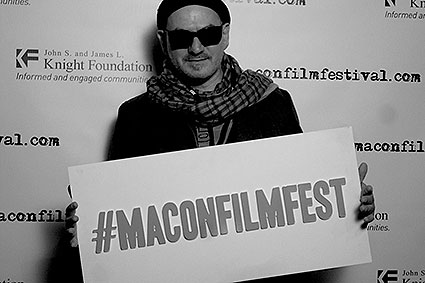 Quali sono stati i momenti più importanti del vasto circuito del “Rosa Nudo”?
Quali sono stati i momenti più importanti del vasto circuito del “Rosa Nudo”?
Ricordo con piacere Seattle soprattutto, perché c'è stato un carteggio importante con l'organizzatrice del Festival. Peraltro, la motivazione, in quel caso, della vittoria del film è veramente interessante. Inoltre, non avevo mai presentato un lungometraggio negli Stati Uniti e mi ha colpito la partecipazione del pubblico alle proiezioni, svolte in teatri molto belli; emozionante anche la reazione del pubblico, che è rimasto impressionato dal film e dalla storia raccontata. Ma ci sono stati momenti indimenticabili anche in altre situazioni, dalla giornata fiorentina al “Florence Queer Film Festival” al tour della memoria: “Il Rosa Nudo” è stato scelto per ricordare la Shoah in varie città del nord d'Italia, come Venezia, Belluno, Treviso, ma anche Arezzo e Pisa, e poi Saluzzo, Bra, Savigliano, Cuneo Verbania”.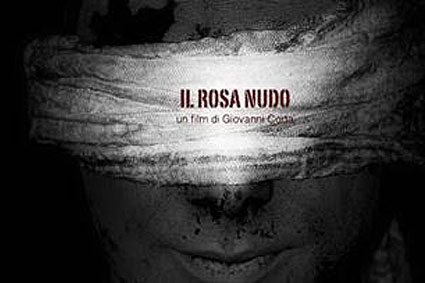 Il suo film sembra mettere in evidenza che, anche con un piccolo budget, si può realizzare un'opera di alto valore...
Il suo film sembra mettere in evidenza che, anche con un piccolo budget, si può realizzare un'opera di alto valore...
Ho già detto, in una situazione ufficiale, che il “Rosa Nudo”, a livello produttivo e distributivo, è un'eccezione che non conferma la regola. Si è sostenuto mediante una comunicazione efficace presente anche in rete, su Facebook, ma pure nell'attenzione dei selezionatori dei festival internazionali. E' costato meno di 5000 euro ed ha suscitato un interesse sorprendente. Probabilmente bisognerebbe riflettere su come sta cambiando la produzione di un film ai nostri giorni. E' stato, in ogni caso, un esperimento riuscito.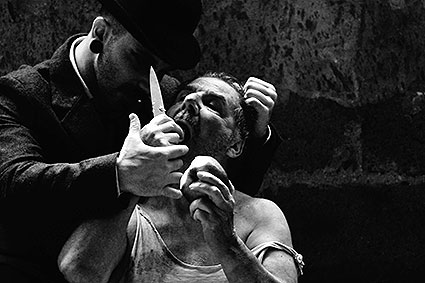 Quanto è contato, a livello di libertà creativa, il fatto di non dover dipendere da sovvenzioni istituzionali?
Quanto è contato, a livello di libertà creativa, il fatto di non dover dipendere da sovvenzioni istituzionali?
C'è stata totale libertà nella creatività, ma, in realtà, sei sempre vincolato al contesto in cui realizzi un film. Probabilmente, molti rappresentanti delle istituzioni non l'hanno visto; il non avere avuto spazio nei giornali sardi è evidente. Ma il “Rosa Nudo” è stato uno dei pochi film isolani, finanziato con capitale privato, che ha avuto un successo pure di critica all'estero, anche considerando il tema trattato, non semplice. Eppure abbiamo avuto la soddisfazione della considerazione dell'Accademia del Cinema Italiano, la nomination ai David di Donatello e persino ai “Ciak d'oro”, un premio ideato da una rivista popolare e molto diffusa.
Detto questo, nessuno, tra i rappresentanti delle istituzioni, è venuto mai a presentare il film; nessuna rassegna cinematografica sarda, neppure tra le più di nicchia, lo ha richiesto, né l'Università lo ha proposto ai suoi studenti. Una reazione deludente e inquietante.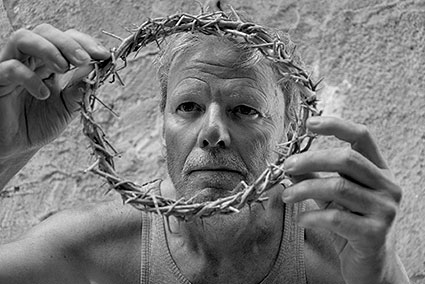 L'autobiografia di Pierre Seel, che lei ha scoperto per caso a Parigi, ed è stata il punto di partenza della sceneggiatura del “Rosa nudo”, sarà pubblicata pure in Italia?
L'autobiografia di Pierre Seel, che lei ha scoperto per caso a Parigi, ed è stata il punto di partenza della sceneggiatura del “Rosa nudo”, sarà pubblicata pure in Italia?
Sì, abbiamo curato la traduzione del libro scritto da Pierre Seel, stiamo trattando per i diritti e verrà edito dalla “Associazione Labor”, mentre, nei prossimi mesi, verrà pubblicato il DVD del “Rosa Nudo”.
Intanto è impegnato in un nuovo progetto?
Sto lavorando con il mio gruppo di collaboratori, che, peraltro, è stato fondamentale nella riuscita “comunicativa” del “Rosa Nudo”, su “Bullied to death”, di cui sto curando la preproduzione e il casting. Sarà prodotto tra Stati Uniti e Italia e sarà girato in inglese. Anche il ragazzo che interpreta il protagonista è americano. Inizieremo questa nuova avventura a fine estate.
“Il Rosa Nudo “. Triumph for Independent Cinema
Time to seize up for Giovanni Coda: the director’s recount of his success and puzzling silence about the movie. Interview by Elisabetta Randaccio
Glancing through the film’s report of “Il Rosa Nudo” by Giovanni Coda, one is left dumbfounded and at the same time it’s a bitter-sweet reaction. We are dealing in fact with a work of art of high quality and with a cultural–didactic message (the gut-wrenching story of Pierre Seel, a young man that ended up in a Nazi concentration camp because he was gay ), but it was poorly understood by the establishment and the media, at least in Sardinia. Yet Coda’s documentary won lots of recognition overseas, not a usual thing for a movie shot in Sardinia. It was selected in major festivals and won the main prize at the “Seattle Social Justice Film Festival” and the “Gothenburg Independent Film Festival”. At the cost of being redundant, we will mention the events where it was nominated and was a hit with the critics and the public: “Macon Film Festival”, Georgia, USA; “Athens Film Festival”, Ohio; “Cinefestival of Human Rights”, Naples, Italy;”Kashish Mumbai International Queer Film Festival “; “TGLFF- Turin Gay and Lesbian Film Festival”; “Florence Queer Festival”; “Mix Festival”, Milan. It was chosen as the main feature at the “Venice Queer Festival” and at the Exhibition of Cinematography in Venice 2013; it was nominated 4 times for the “Donatello’s David” and one for “Ciak d’Oro”. It’s a noteworthy resume built over a year of hard labor and serious effort.
We asked the director Giovanni Coda to give us an assessment about these remarkable past months.
“Il Rosa Nudo” has been in circulation for the past two years, a creative trail that started from a photographic show in Barcelona, combined with the study of a powerful story virtually unknown, set in the midst of the Holocaust, withstanding the standard deportation of homosexuals to Nazi concentration camps. It was a powerful subject matter on paper, and became even more powerful in the construction of the narrative, although “Il Rosa Nudo” is an anti-narrative film, shot between modern times, tradition and theater, that bring to mind the movies of Ozu. This “challenging” documentary was loved by audiences throughout many festivals. Significant was the success in the States, where it was presented in five different categories. In Seattle, where it won first prize at the “Social Justice Film Festival”, a general category not LBGT (not exclusively tied to the plight and stories of Lesbians, Gay, Bisexuals and Transgender), after the showing a very interesting discussion followed. Same thing happened in Europe, at Gothenburg and other cities. “Il Rosa Nudo” was a source of great satisfaction for me.
What were the capital moments in the long road of “Il Rosa Nudo”?
Above all I remember Seattle, because of the crucial correspondence with the producer of the Festival. Furthermore the reason of the film’s victory was truly interesting. To be honest, I had never shown a documentary before in the States, and I was taken aback by the reaction of the audience during the showing, plus the whole thing was presented in beautiful theaters. The reaction of the audience was very emotional; they were touched by the film and the story. There were also unforgettable moments in other places, such as a day in Florence at the “Florence Queer Film Festival” and at the Memorial Tour: “Il Rosa Nudo” was chosen to commemorate the Holocaust in many Italian cities like Venice, Belluno, Treviso, also Arezzo, Pisa and even Saluzzo, Bra, Savigliano, Cuneo Verbania.
Your film seems to show that even with a small budget you can create a great work of art...
I already said in an official venue that “Il Rosa Nudo”, at a distribution and production level, is the exception that proves the rule. It was sustained by effective communications present in the Internet, on Facebook, and also it was brought in for consideration to the judges of International Festivals. Its budget was less than 5,000 Euros and that brought in a lot of attention. It gives you pause to think how a film is produced today and how things have changed. In any case, it was a successful experiment.
From the stand point of creative freedom, did it matter not to be dependent upon institutional grants?
There was total creative freedom, but actually you are always tied to a context where to create your movie. As it turned out, many representatives of the establishment did not see it; obviously it was not reported in any of the Sardinian press. Yet, “Il Rosa Nudo” was one of the few films from Sardinia, financed with private investments, that was applauded by the critics overseas, considering the difficult subject matter. We even had the honor of being mentioned by the “Academy of Italian Cinema”, the nomination at “Donatello’s David “ and also the “Ciak d’Oro”, a reward created by a famous review, very popular. It was unfortunate that none among the representatives of the establishment came to present the film, nor any cinematographic reviews from Sardinia, not even the niche elite has shown interest, not to mention that the University has never suggested the documentary to his students. A disappointing and troubling reaction.
Will the autobiography of Pierre Seel, that you discovered by chance in Paris, the starting point of “Il Rosa Nudo”, be ever published in Italy?
Yes, we are editing the translation of the book by Pierre Seel, we are negotiating the rights and it will be published by “The Labor Association”. In the mean time the DVD for “Il Rosa Nudo” will be released.
Are you working on another project now?
I am working on “Bullied to Death” with my associates, who were fundamental in the success of spreading the message for “Il Rosa Nudo”; I am involved in the pre-production work and casting. It will be produced in the States and will be filmed in English. In fact the young man that plays the main character is American. We will start this new adventure after the summer.
23 luglio 2014
